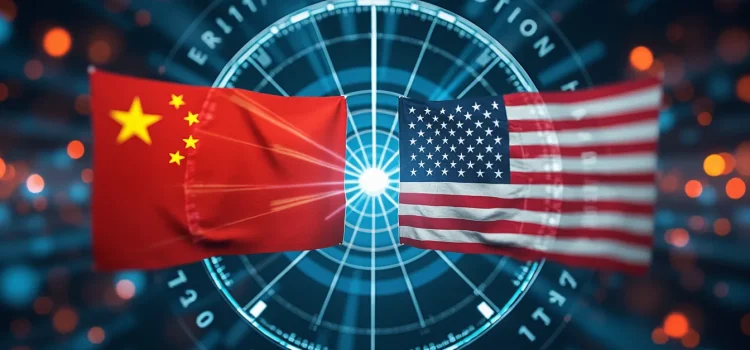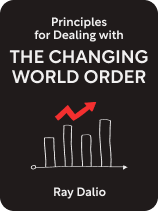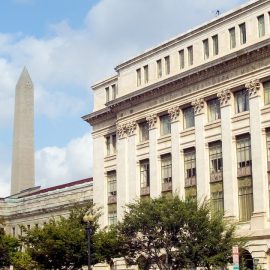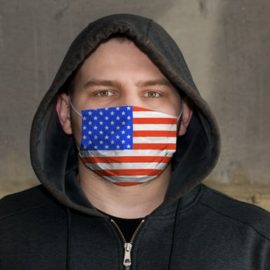

This article is an excerpt from the Shortform book guide to "Principles for Dealing with the Changing World Order" by Ray Dalio. Shortform has the world's best summaries and analyses of books you should be reading.
Like this article? Sign up for a free trial here.
Is China poised to become the world’s next superpower? What factors are shaping the future of US-China relations?
According to Ray Dalio, China and the US are the ones to watch. In his book Principles for Dealing With the Changing World Order, he examines key concepts such as human inventiveness, economic cycles, and geopolitical tensions to paint a picture of China’s rising influence and the challenges facing the US.
Read on to discover Dalio’s thought-provoking analysis of these two global giants and their potential trajectories in the coming years.
Ray Dalio on China
According to Ray Dalio, China and the US must be watched closely if we are to understand what major shifts will most likely occur next in the world’s cycles. He calls back to four key concepts in his book: human inventiveness and the three dimensions of the main pattern of “the big cycle.”
Human Inventiveness
Given the many spectacular inventions of the past—from electricity to vaccines—and due to advances in AI and quantum computing, Dalio is optimistic about human progress continuing. The US and China will lead this progress, as both have productive, innovative workforces and economies.
(Shortform note: Another major country to watch is India, which some experts argue is perhaps the most important emerging world power. With the world’s largest population and a unique position as a longstanding voice for the Global South since prime minister Jawaharlal Nehru’s cofounding of the Non-Aligned Movement during the Cold War, India can’t be overlooked.)
Debt and Economic Cycles
Dalio says the US Dollar is in decline as a reserve currency, as the US is late in its cycle as a major power. High US debt will likely lead to the dollar weakening, whereas China has moderate debt and the renminbi (China’s currency) is on the rise.
(Shortform note: While China’s economy is large, powerful, and growing, the renminbi does not yet have a strong position as a reserve currency. As of 2024, the Euro, British pound, and Japanese yen all trail the dollar yet surpass the renminbi in average international usage.)
Sociopolitical Cycles
According to Dalio, the US shows strong signs of internal turmoil and may be heading toward more serious fragmentation. Increasing levels of political polarization, values gaps, and financial uncertainty mean that the US could descend into a period of possibly violent restructuring—Dalio suggests a 30% chance of a civil war-like event within 10 to 15 years.
However, he also argues that the US has weathered more political turmoil than most empires do, having persisted through 250 years that saw a civil war, multiple major depressions and world wars, and other major civil conflicts. While Dalio says it would be difficult—given the US’s high international debt, weakened political standing, and high levels of internal conflict—the country could manage by recognizing the decline and aiming for a nonviolent restructuring.
(Shortform note: Various experts and pundits have long thrown around rhetoric to the effect that “the West is in decline,” and that may be true, at least in part. However, John Rapley, one of the authors of Why Empires Fall, argues that the United States, which helms the Western world order, isn’t doomed to disappear. Rather, he says that while America can’t return to the heights of global dominance it held in the decades following WWII, the nation still has abundant power in the form of its huge capital reserves, advanced military, extensive alliances, and cultural soft power. Rather than attempt another era of “America First,” Rapley says that the United States can remain powerful through cooperation and coalition-building with other major world powers.)
China, on the other hand, is presently in a period of peace and prosperity. They have relatively strong economic fundamentals (low debt, high productivity) and a strong civil society with low conflict over values and wealth distribution. While he doesn’t go into great detail, Dalio expresses optimism about China.
(Shortform note: In contrast to Dalio’s assertion that China boasts strong civil society, other experts say that Chinese civil society struggles to define itself as fully apart from the government. In one example, domestic non-governmental organizations (NGOs) tend to end up as governmentally organized NGOs, or GONGOs, since China’s government doesn’t often sanction organized activity that’s outside party control.)
Geopolitical Cycles
In the global order, Dalio explains that the US and China are the two major powers to watch. He contends that they’re engaged in four of the five types of war: Economic, technological, geopolitical, and capital conflicts. For instance, both countries have long been engaged in tense diplomacy regarding activities in the South China Sea. These conflicts will intensify as China becomes more competitive as a global power.
Additionally, the US military remains the strongest in the world. However, China’s is nearly comparable and is growing, particularly across Asia—from the Koreas and Southeast Asia to India and Pakistan. Dalio estimates a 35% chance of a hot war within 10 years, and he says it would likely break out over Taiwan, a major pain point between the two powers. If we’re lucky, he says the tenet of “mutually assured destruction” may prevent outright military conflict on a global scale.
(Shortform note: In recent years, US-China relations have been fraught with tension over Taiwan, the world’s largest manufacturer of semiconductors and therefore a massive economic asset, as well as over a military arms race and looming elections in Taiwan. During the Trump administration, US-China relations deteriorated, and while the Biden administration has been more diplomatic, no major issues have been solved. China’s intent to expand its nuclear arsenal remains a prominent concern for the US, and the possible reelection of Donald Trump in the US’s 2024 elections could also spell a return to deteriorating diplomacy.)

———End of Preview———
Like what you just read? Read the rest of the world's best book summary and analysis of Ray Dalio's "Principles for Dealing with the Changing World Order" at Shortform.
Here's what you'll find in our full Principles for Dealing with the Changing World Order summary:
- How to use patterns in world history to make better decisions today
- What may happen in the near future for the United States and China
- Why humans are stuck in a competition for wealth and power






